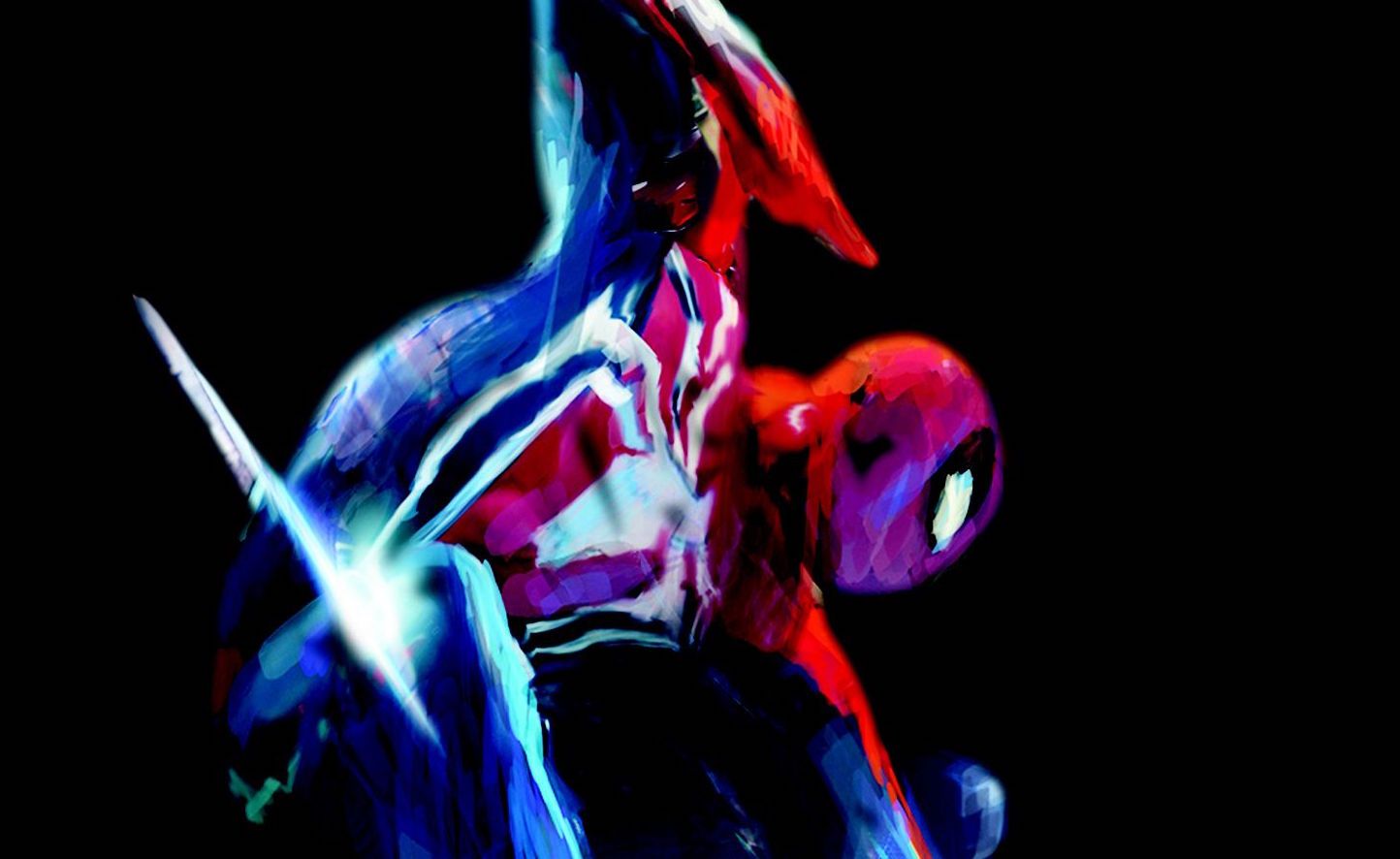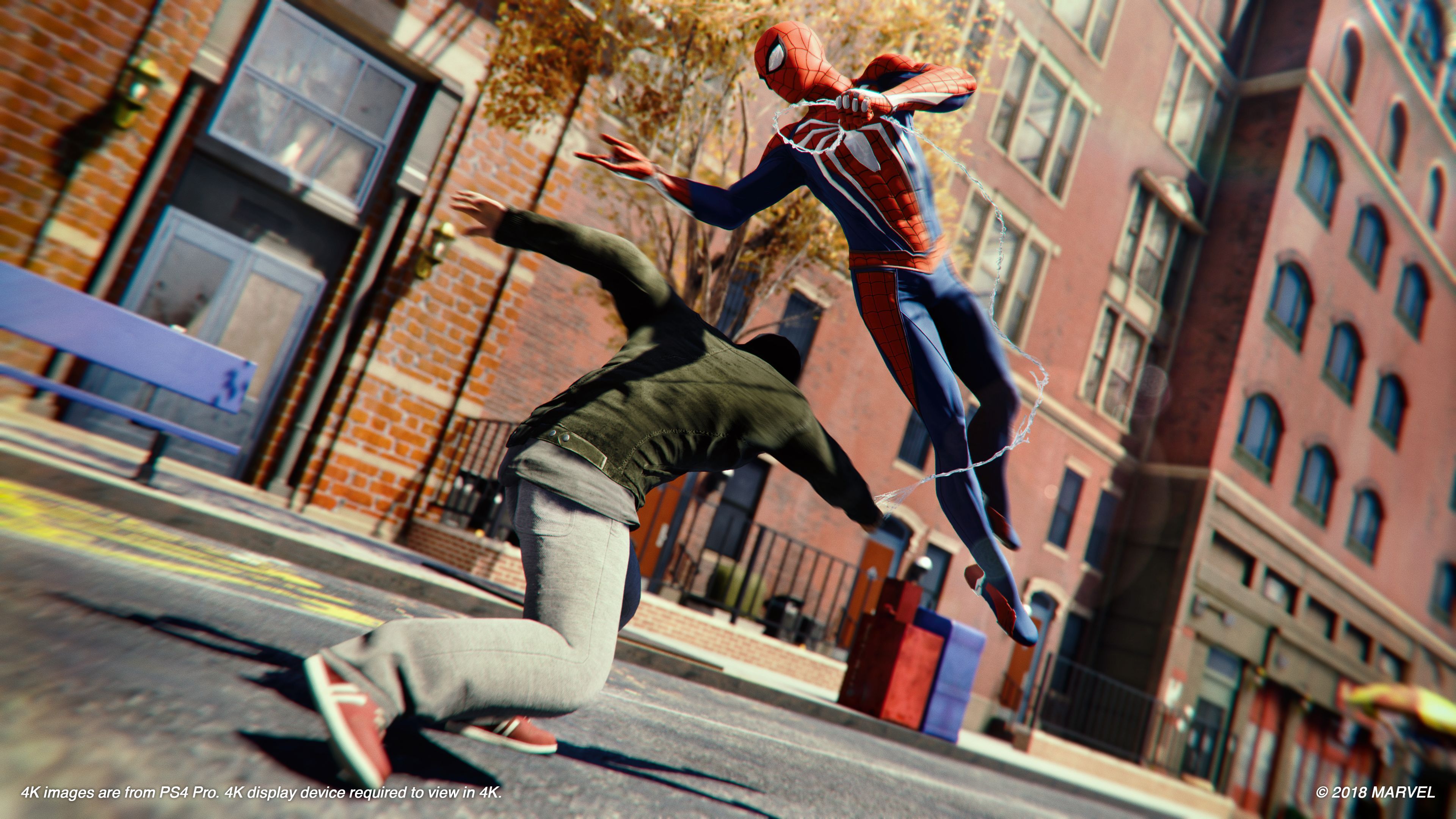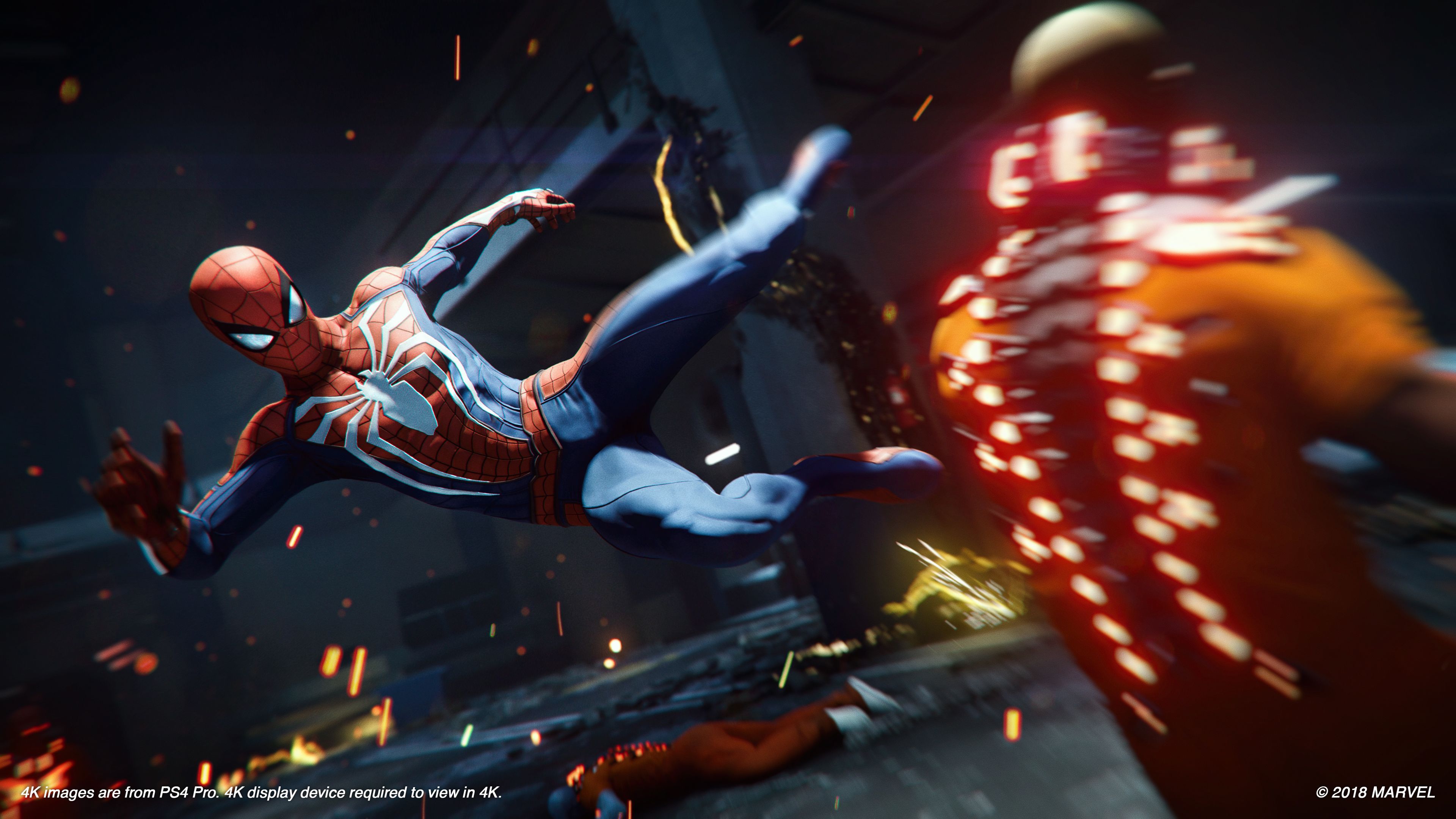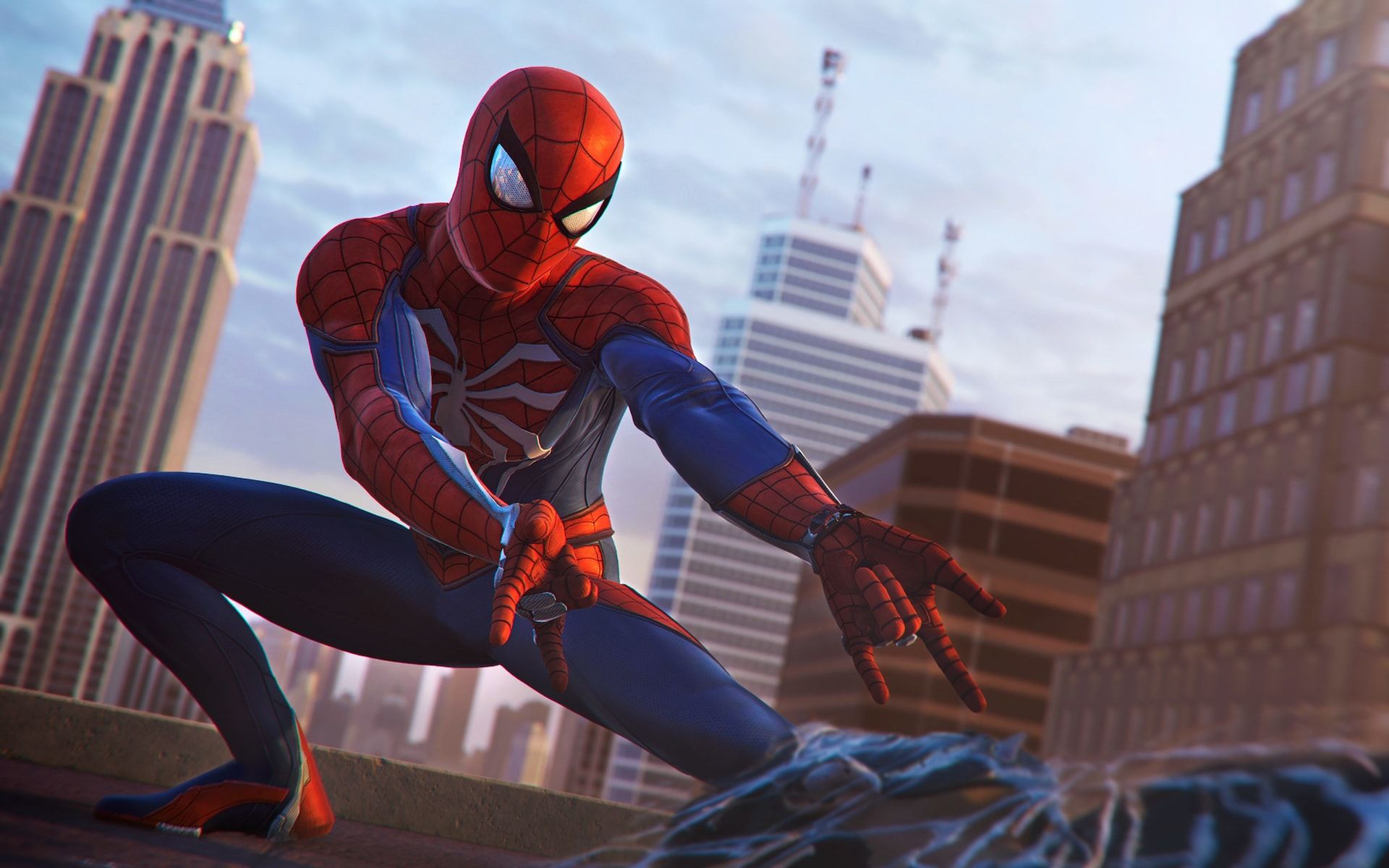Spider-Man: Hostile Takeover is the prequel novel that takes place before the events of Marvel's Spider-Man. I reviewed the novel last week and found it to be a great introduction to this version of Spider-Man that we'll soon become familiar with in the video game.
Recently, I sat down for an interview with author David Liss to talk about his work on Spider-Man: Hostile Takeover and the process that went with writing a prequel novel that has to tie into a larger story. Liss told me about the freedom that he had with the project, his decision to include certain characters, and some of the hints that he was able to drop in throughout that book to foreshadow events that might transpire in the game.
Fair warning, there are some mild spoilers for Hostile Takeover divulged in this interview, so read ahead at your own leisure.
Logan: I've always been really interested about how these video game tie-in novels get made because I'd imagine it has to be a collaborative effort between both the story group at a studio, such as Insomniac Games, and an outside author like yourself. How did Spider-Man: Hostile Takeover get made and how did you end up getting attached to the project?
David Liss: I can walk you through my experience, but this is the only project I've ever worked on of this type. I don't know how typical this is of the industry as a whole or how other books like this would come together.
For me, it goes back maybe ten years. I started writing comics for Marvel and my editor there was Bill Rosemann, who is now creative director at Marvel Games. When they decided they wanted to do this novel, he threw my name out there and the editor, Steve Saffel at Titan Books, contacted me and said they were working on a top-secret project and asked if I wanted any part of it. The fact that it was Spider-Man and the fact that I'd get to work with Bill again, who is just a terrific guy to work with, basically made it a pretty easy decision for me. I'm a terrible business person, I said yes before I ever asked how much they were paying. [laughs]
L: So what was the timeframe like when this all started to happen?
DL: I was on a pretty compressed timeline, especially for me. Most of what I do is historical fiction and I'll come up with an idea, I'll do research until I feel like I've done enough, and then I'll write until I feel like it's done. I don't usually work on deadlines.
I'm pretty sure Steve at Titan contacted me in late November of last year. We finalized the deal and I basically had three months to write the book.
L: How did they get you up to speed on what you'd be working with? Since this is a prequel novel, I'd imagine you had to be fed all of the information from Insomniac's story group about this version of Spider-Man that you're writing about so that you'd know how it fits into the larger story that the video game will end up telling. Who did you end up working with and how did that process go?
DL: I interacted mostly with the Marvel Games team. There were a few conference calls where the Insomniac people were on the line, especially the scriptwriters, but that tended to be more towards the end. The way it worked was that there was an encrypted server device for files to be loaded. Everything had my name as a watermark on it so if there were any leaks they would know who to blame.
I got as much of the documentation and secondary materials as were available including the game script, the game bible, character bios, images of characters from the game world. I had to go through all of that material to sort of figure out what the story was going to be, what the parameters would be, and what the game world was because it's obviously not the same as the Marvel comics universe. As the process went on, a lot of times I would say, "It would be really helpful if I knew 'this' about the character or if I knew where in the city 'this' happened." A lot of it was just day to day. Some days I would send like ten emails to Marvel asking for certain details and a lot of it was just minor details about what part of the city Peter lives in or something like that.
There was a big info dump at the beginning and a lot of information to go through and then a lot of communication along the way.
L: So just to clarify, they did tell you the full scope of the project. You know the whole story of what happens within Marvel's Spider-Man, right?
DL: Yeah, I read the whole script.
L: Okay, I wasn't sure how secretive they'd be with information or if they'd just feed you select snippets of the story or if they gave you literally everything they have.
DL: I had access to pretty much everything that was available but was sworn to secrecy on pain of death. There was like, dual-encryption for everything. I wasn't supposed to mention character names in my emails. The project literally had a codename that we were supposed to use when talking about it over email and we could really only go over details on the phone. It was like spy stuff.
L: How much freedom did you have on your end to craft what this prequel story would be? For the people who haven't read Hostile Takeover, it all centers around this clash between Spider-Man and Kingpin leading up to the opening moments of the video game, but was that your idea for the novel or did you have to create a story that fit certain guidelines you were given?
DL: It was sort of an interesting way to think about a story. They told me I could come up with anything that I wanted but of course, anything I came up with had to be approved. One month of that three month period was just putting the outline together. That was a really collaborative experience and they were really hands-on and they would make suggestions. There was a lot of back and forth in the outlining phase.
I had the freedom to do anything that would get us to where the game begins but they leaned heavily on the idea that the book could be about Spider-Man's conflict with Kingpin. They felt like that would make sense since it's where the game begins and it's also a big part of Spider-Man's backstory in terms of where he is emotionally when the game begins. That was their preference and it made a lot of sense to me. It worked as a story. Frankly, I like writing about Kingpin. When I was writing Black Panther, one of the big arcs I did was T'Challa vs. Kingpin so I felt really comfortable with it. I think he's a really cool villain.
L: So whose call was it to then bring in the additional antagonists of Echo and Blood Spider? Was that yours or was it something they also requested you to add?
DL: Doing a story of Spider-Man going up against Kingpin was basically the template and I could do it however I wanted. To tell the kind of story that I thought would work given where the character is and where we need to go with him, I liked the idea of having two villains. Kingpin couldn't be the hands-on villain of the novel because there can't be a resolution with him in the novel because of how the game opens.
I wanted to have a henchman for Kingpin, as sort of the immediate threat in the novel. Then I liked the idea of having two -- one of whom is sort of irredeemably bad and one of whom is a little more morally ambiguous. That would be a good a good field in which the Spider-Man character could play and would bring out what makes him interesting.
One of the documents I had was a list of characters that had been legally approved for the game -- 99% of which hadn't been used. When the game project started, that's what they had to play with. I just went through that list and thought about who I could use and who would be interesting, and which of the characters did what I was looking for. Echo I always thought was a good character and Blood Spider I liked a lot because he's really underused. There was a lot of room to play with him and a lot of freedom to sort of rethink the character as I saw fit.
L: There are a couple instances later on in the book that seemed like you were dropping hints to things that could come back into play in the video game. For one, Norman Osborn's larger plan is never really revealed and a lot of the moments with Harry really stuck out to me because Insomniac has been relatively quiet about how he fits into their game. How careful did you have to be with these foreshadowing moments and how much clearance did you have to get from Marvel to include them?
DL: There was a process once I finished the manuscript and it was reviewed by a lot of people. Some of the details they would tell me were too much and I'd need to take some of it out because they didn't want to reveal that much. Other times, they'd tell me I could put a little more pressure on certain moments because they wanted a stronger hint. There were a bunch of instances where details that they originally asked me to include they'd then ask that I take out because the landscape was changing.
There are two goals in a project like this -- one is to just tell a good Spider-Man story, a story that readers will care about and will want to know what happens next. There's a sort of larger arc though which was that you want people who read the book and then play the game to have a richer experience. Wherever it worked narratively or wherever I could make it fit, I wanted to drop as many hints and lead into things that are going to happen in the game universe and provide those points of contact. So it was definitely on my mind. It's not the usual way in which I write a novel, but this is what makes this sort of project work. You want to make bells go off for people who experience the story in both media.
L: So will you be picking up Marvel's Spider-Man for yourself on day one and playing it just like everyone else? Are you typically someone who plays a lot of games?
DL: Maybe this is going to date me or make me some enemies. I am a gamer but I hate console gaming. I'm a PC gamer. I just don't really have an intuitive feel for the controller. It has never really felt natural to me.
That said, my son's birthday is coming up and he's getting a PlayStation and he's getting Marvel's Spider-Man with it. I won't be getting it on day one but I'll be getting it, what, on week three, maybe? [laughs]
You know, for years I've actually wondered why they don't just do an open-world Spider-Man game. It just seemed natural and intuitive to me. The gameplay is just natural and the setting is perfect. [Marvel's Spider-Man] really seems like the sort of thing I'd love if I can get the controller to work for me.
L: To wrap things up, what's the one thing about Hostile Takeover you'd want people to know about? Anyone who's on the fence and is considering picking it up before Marvel's Spider-Man releases, what would you say to sell them on it?
DL: I think we've kind of touched on it before but if I'm making a pitch on why you should read this book, I'm assuming I'm talking to people who are interested in the game. If you read the book, you're going to enjoy the game's story that much more. You're going to have a deeper sense of the world and the characters. There's a kind of satisfaction with understanding a universe and I think the book provides that. It'll just give you a much richer feel for the game world.
Spider-Man: Hostile Takeover is out now and can be picked up over on Amazon for barely more than $5. You can also now pre-order a physical copy of Marvel's Spider-Man for PS4 if you haven't already done so before it releases on September 7.




